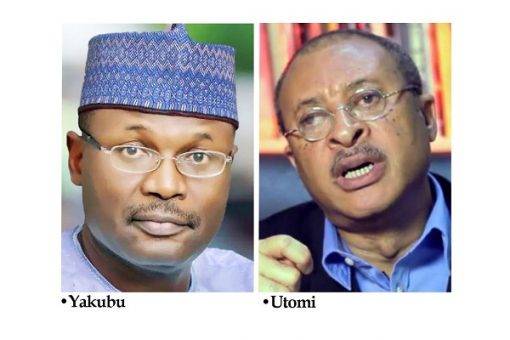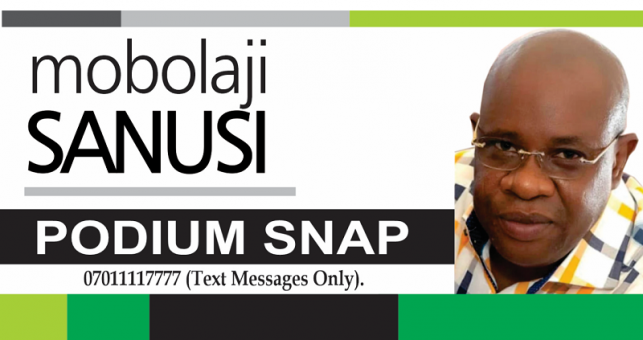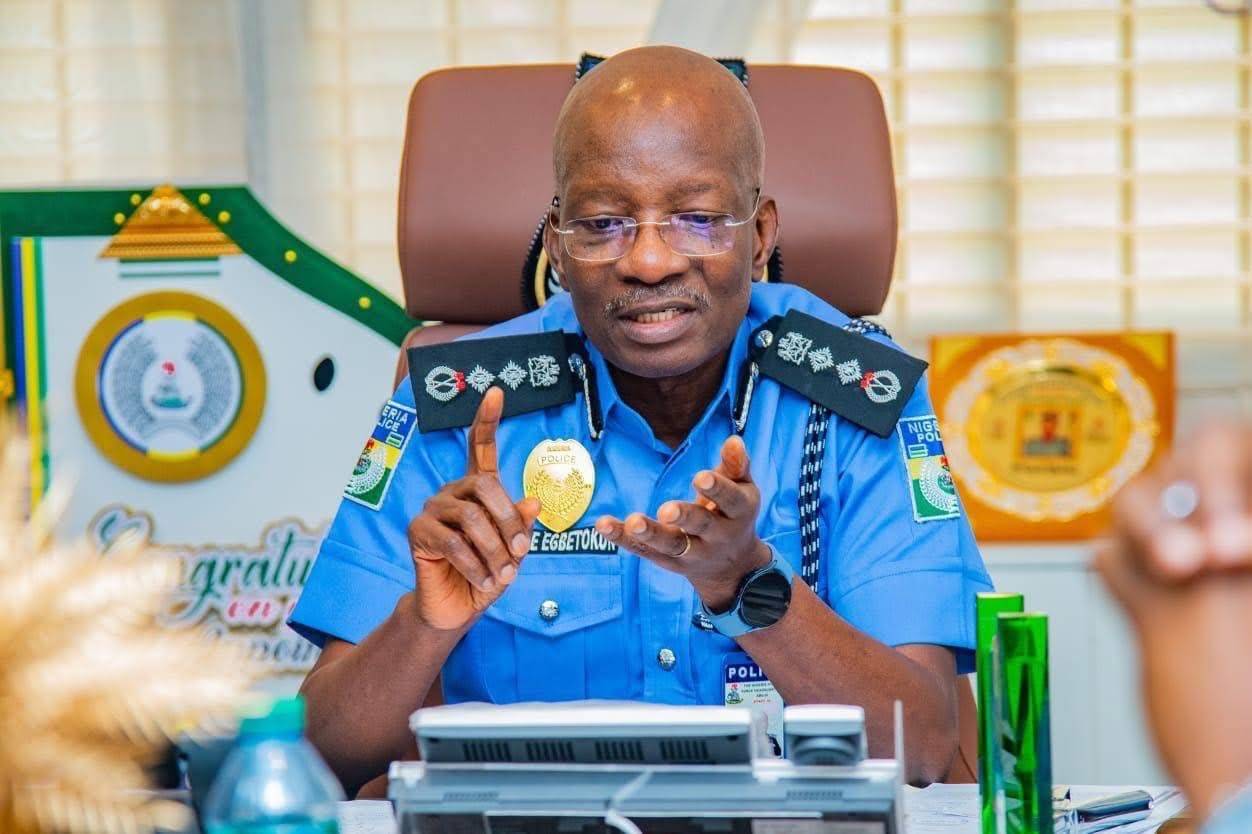By Segun Ayobolu
Given the intense and unprecedented bitterness engendered in some quarters by the outcome of the 2023 presidential elections, the absurd extremes to which vested interests, many posing as altruistic activists, pro-democracy advocates and patriotic citizens, went to discredit and delegitimize the polls and the sustained efforts by these elements to reinforce the myth that the election was the worst in Nigeria’s history and unreflective of the will of the electorate, shouldn’t the immediate past Chairman of the Independent Electoral Commission (INEC), Professor Mahmood Yakubu, have left office in a deafening din of universal condemnation and unedifying opprobrium?
No, the circumstances and atmosphere in which Yakubu formally vacated office this week at the expiration of his two-term tenure of ten years were markedly different from that in which Professor Maurice Iwu, Chairman of INEC from June 2005 to 28 April 2010, unceremoniously exited the position with little fanfare. The stridency with which Iwu proclaimed from the hilltops that the 2007 elections, which he superintendent, were the best in the universal history of elections, a claim that sharply contradicted the widely condemned appalling atrocities that marred the elections, contrasts with the calm dignity and quiet composure with which Yakubu quit the electoral arena leaving others and posterity as the final assessors of his record.
Incidentally, the winner of the 2007 elections, the late President Umaru Yar’Adua, admitted that the polls through which he emerged were flawed, while the courts upturned the governorship elections conducted by Iwu that year in at least five states. It was partly because of the undeniable significant improvements in the conduct of elections in Nigeria particularly as from 2015 as compared to what can be described as the ‘primitive era’ of electoral contestation in 2003 and 2007 that the majority of fair-minded analysts were generous in their assessment of Professor Yakubu Mahmood’s performance as INEC Chairman even while admitting that elections conducted under his watch were not perfect as indeed such contests for power can hardly be expected to be in most emergent democracies.
Although reforms to enhance the technical capacity, technological resourcefulness and institutional autonomy as well as integrity of INEC began under Professor Attahiru Jega as the Commission’s Chairman from 2010 to 2015, it was under Professor Yakubu that these innovations were consolidated, reinforced and substantially widened in scope. This was partly because he was the first head of the electoral umpire to complete a two-term tenure of ten years, ensuring leadership continuity and stability that enabled him to set and actualise long-term objectives.
Comprehensively capturing the innovations that characterised the Professor Yakubu years, this newspaper’s columnist, Festus Eriye, writes that “You cannot discuss Yakubu’s legacy without talking about the Commission’s embrace of technology. Two key items have become household names in political discourse. The Bimodal Voters Accreditation System (BVAS) with fingerprint and facial recognition was introduced in place of the flawed manual processes. Equally, the INEC Result Viewing Portal (IReV) came into being, allowing Nigerians to view polling unit results in real time. Technology has also revolutionised voter registration through IVED and ABIS, eliminating 2.7 million fraudulent registrations. Digital portals for candidate nomination, party agent registration, observer accreditation, and media access are now available. In a first on the African continent, INEC has introduced the Artificial Intelligence Division, with an eye on the future of election management “.
Festus Eriye continues: “Other achievements of the Yakubu tenure include expanding the Voter Roll by institutionalising Continuous Voter Registration (CVR). This has created year-round opportunities for people to register…He would be remembered for making inclusion a core part of his agenda with the establishment of the Department of Gender and Inclusivity to give structure and voice to representation. Quota slots were reserved for women in senior management, breaking long-standing barriers. Also introduced were assistive voting devices like Braille ballots and magnifying lenses. He created and implemented legal frameworks for Internally Displaced Persons (IDPs) to vote, safeguarding rights even in times of crisis. To actually walk his talk, persons with disabilities were hired within INEC”.
The consensus of informed opinion is that Professor Yakubu finished his tenure creditably and left office in what is difficult to distinguish from a blaze of glory. It is unfortunate that some of those who seek to discredit INEC as an institution, Professor Yakubu as a public official and the 2023 presidential election in its entirety simply because a candidate of their choice did not emerge as the winner in the exercise are supposed intellectuals for whom a commitment to truth and moral integrity ought to be uncompromising guideposts. Integral to the definition of the intellectual is an abiding respect for truth and fidelity to empirical facts. For the journalist, in this regard, the guiding dictum is that facts are sacred while opinions are free.
At the forefront of efforts to demonise the 2023 elections and strip the President Bola Tinubu administration of all vestiges of legitimacy and credibility for patently partisan, possibly ethnic and obviously non-altruistic reasons is none other than the self-styled political economist, Professor Pat Utomi. I am unaware of any original contributions that Professor Utomi has made as a scholar to either the radical or liberal variants of political economy that compare even remotely with those of such first-class Nigerian economists as Claude Ake, Eskor Toyo, Bade Onimode, Ojetunji Aboyade, Sam Aluko, Pius Okigbo or Mike Kwanashie. Indeed, in February last year, the good professor predicted that the value of the Naira would soon plunge to N10,000 to the dollar, given what he saw as the ineptness and inappropriateness of the Tinubu administration’s economic policies.
As one Ufuoma Bernard posted sarcastically on his Facebook page last week, “Professor Pat Utomi predicted a few months ago that the dollar would hit N10,000, but today it is N1,486. Man no be God”. Also commenting on Utomi ‘s prediction, Bode Opeseitan wrote, “In February 2024, during a political event, Professor Pat Utomi declared: ‘Nigeria is dying’. He went further to predict that the Naira could collapse to as low as N10,000 to the dollar, tying this grim prophecy to insecurity, lack of production, and distrust in leadership”. Continuing, Opeiseitan submitted that “Speaking in a politically charged environment as a Labour Party chieftain also may have sharpened his rhetoric. Yet, what he (Utomi) failed to anticipate was the multipronged approach of the Tinubu administration – bold subsidy removals, forex unification, Central Bank reforms, and investment courting – that kept Nigeria from plunging into Venezuela-type hyperinflation. Though the Naira briefly neared N2000/$ in forecasts, it stabilised below N1,500/$ – never reaching Utomi ‘s catastrophic scenario”.
True, Utomi’s concerns about security and the country’s productive base are legitimate. But careless, rash and extremist assertions may be tolerated in journalism, but never from serious scholars, supposed to be authoritative and sober voices in their areas of specialisation. Only recently, Professor Utomi was clearly the brain behind the formation and outing of a new group, the Alliance for the Defence of Democracy (ADD) with the stated objective of championing the actualisation of electoral reforms in the country. Some notable senior lawyers, prominent academics, civil society activists and pro-democracy advocates were named as members of the group.
Among the stated aims of the ADD are to “launch a mass movement to drive critical reforms in the electoral laws of Nigeria, especially those that dimmed the credibility of the 2023 elections namely; compulsory electronic transmission of election results, effective criminalization of votes buying, enactment of early and diaspora voting as initiated by the House of Representatives, proportional representation in government, especially seats for women and other vulnerable groups among others”. But as one of this newspaper’s columnists, Idowu Akinlotan, noted, Utomi and his group are grossly mistaken to assume that the 2023 presidential elections could be credibly and plausibly delegitimised on the basis of factors they have targeted for electoral reforms, such as electronic transmission of results.
In the pertinent words of Akinlotan, “The facts of the 2023 presidential poll are clear. Each of the three leading presidential candidates won in 12 states, with Mr Obi, however, winning in 11 and the Federal Capital Territory. Where exactly did the purported rigging take place – in the 12 states out of 36 states won by the eventual winner, Bola Tinubu of the All Progressives Congress (APC)? Or in the 23 states plus FCT won by the candidates of the PDP and LP, especially the latter, who won his Southeast region through a voter turnout troublingly out of sync with the national turnout? How more credible could an election be where there was neither a landslide nor outright and overwhelming dominance? President Tinubu lost Lagos, his base, Osun in the Southwest, Katsina, where the then sitting President Muhammadu Buhari of the ruling party came from, and in no state did he win by a huge margin on the scale Mr Obi did in the Southeast. But analysts have distorted the presidential election outcome, raised dishonest posers and comparisons with past elections, and illogically and unconstitutionally concluded that perhaps a runoff would have lent the results credibility “.
At the head of this band of intellectual distortionists is none other than Professor Pat Utomi. Yet, nowhere has he come out to utilise his skills and cerebral prowess as a scholar and forensic political economist to demonstrate logically and empirically that his candidate, Mr Peter Obi, won that election as repeatedly claimed. In the same vein, during the 2020 #EndSARs protests in Lagos, Professor Utomi was one of the first prominent faces I saw on national television affirming authoritatively that the deployment of troops to contain the virtual descent of Lagos to anarchy at the Lekki Toll Gate was accompanied by a massacre of large numbers of protesters. To date, the slightest shred of evidence to prove this, including the hundreds of corpses so gruesomely murdered in cold blood, has not been provided. Yet, this patent untruth continues to be propagated and believed by significant numbers of people.
Undoubtedly, one of the worst elections ever in the history of Nigeria was the 1983 presidential election, so brazenly rigged by the then-ruling National Party of Nigeria (NPN). The election resulted in widespread violence in states like Oyo, Ondo, Niger and Anambra, among others. In the process of collation of the results, a super Minister in the Shehu Shagari administration, Alhaji Umaru Dikko, Minister of Transportation, unaccountably forced his way into the headquarters of the then Federal Electoral Commission (FEDECO) to rancorous public outcry.
It was only a matter of months before the military got rid of the administration on December 31 1983. Yet, a then much younger Pat Utomi was on the network of the Nigerian Television Authority (NTA) night after night, alongside the likes of Professor Walter Ofonagoro and Emeka Maduagbuena, proffering fraudulent intellectual justification for a criminally rigged election. Today, he is at the forefront of lending analytical artillery to delegitimise a 2023 presidential election infinitely more credible and demonstrative of integrity than the one he vigorously defended in his youth over four decades ago.












